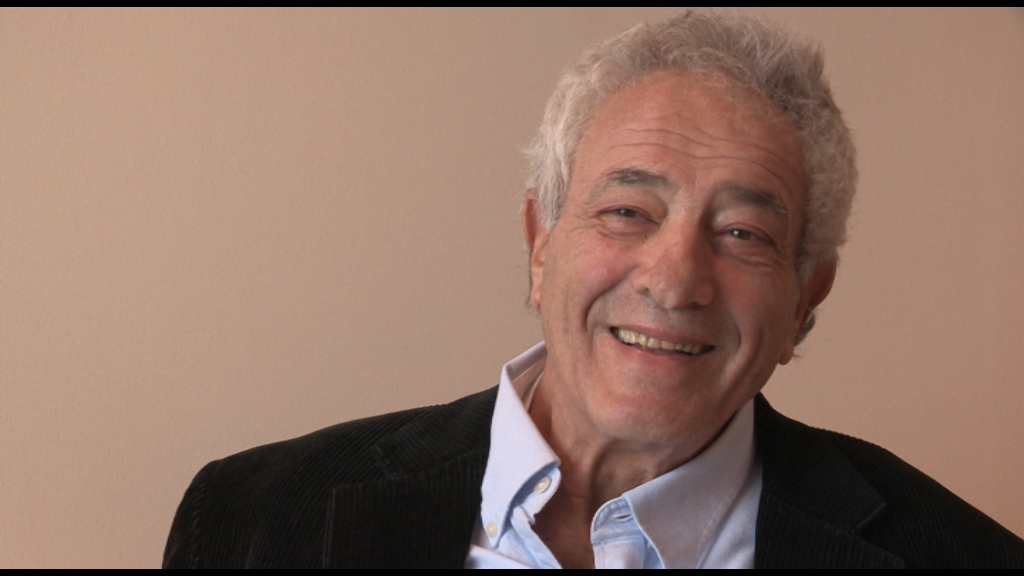NEXT STORY

Go-slow Britain
RELATED STORIES

NEXT STORY

Go-slow Britain
RELATED STORIES


|
Views | Duration | |
|---|---|---|---|
| 71. Our vertical offices | 15 | 02:24 | |
| 72. First brush with the unions | 15 | 02:43 | |
| 73. Doing battle with the jobsworths | 16 | 04:15 | |
| 74. Go-slow Britain | 14 | 03:30 | |
| 75. Ringing the changes at the Penguin office | 15 | 02:42 | |
| 76. Trying to recapture the joy of reading | 21 | 04:03 | |
| 77. Publishing The Far Pavilions | 18 | 04:00 | |
| 78. Shaking up the status quo at Penguin Books | 15 | 02:42 | |
| 79. Turning around Penguin's fortunes | 19 | 02:45 | |
| 80. You can’t have a kissing couple on the cover of a Penguin... | 20 | 02:17 |


I was someone who actually had a very strong sympathy for unions, which it was quite possible to have at that time in American life - maybe that's even true today - because the unions in America were, for the most part, not ideological. They were about wages and hours and holidays and benefits. That's all that it was about. Wasn't about your right to manage.
But the NUJ took a different view, that they had something to say about the way a company was managed, and it was a bit unfortunate that they did, since almost none of them had any background in management. But that didn't disqualify them, they thought, from having a say. And I discovered that most of what they believed in was restrictive of the management's right to manage, so that it was a strange situation.
Penguin was failing, but the union made it very difficult to make any changes. They probably saw it very differently. But I, who had been given the ball, to use an American football expression, [to] either run with it, pass with the ball, or kick the ball, do something with the ball, found I was generally confronted with: that can't be done, or that isn't done.
And, well, I discovered that I had no office, and so I commandeered, my few powers were to organise, that walls, four walls, would be built around this table. So carpenters, before long, set about building walls while I was sitting inside the, slowly, very slowly arriving walls. I was sitting inside. The guests at Penguin were just outside the hammering. And I thought it would be possible to get an assistant or a secretary just to pick up the phone. I was told that was not possible either, since everybody had an assigned role, and it did not say in anybody's contract: pick up the phone for the chief executive. It was: pick up the phone and write letters for whichever editor they might be assigned to.
So, I remember saying to John Broome, well, are all the editors present? No. Two of them are off on business trips to America. So I said, couldn't these, couldn't their PAs or their assistants be seconded while [their editors] were in America to the chief executive to just pick up the phone? And I was told that the agreements didn't say yea or nay to that. So I had a different… I had different people picking up the phone. Whenever somebody was missing, that PA would be assigned to me for a day, a week. Sometimes as long as two weeks, but nobody ever knew anything, because they were not very interested. And they actually thought it was quite wrong, that they had been hired to be Mr Smith's PA and they were now Mr Mayer's PA and… but there wasn't anything to forbid this practice, so it went on.
Peter Mayer (1936-2018) was an American independent publisher who was president of The Overlook Press/Peter Mayer Publishers, Inc, a New York-based publishing company he founded with his father in 1971. At the time of Overlook's founding, Mayer was head of Avon Books, a large New York-based paperback publisher. There, he successfully launched the trade paperback as a viable alternative to mass market and hardcover formats. From 1978 to 1996 he was CEO of Penguin Books, where he introduced a flexible style in editorial, marketing, and production. More recently, Mayer had financially revived both Ardis, a publisher of Russian literature in English, and Duckworth, an independent publishing house in the UK.
Title: Doing battle with the jobsworths
Listeners: Christopher Sykes
Christopher Sykes is an independent documentary producer who has made a number of films about science and scientists for BBC TV, Channel Four, and PBS.
Tags: National Union of Journalists
Duration: 4 minutes, 15 seconds
Date story recorded: September 2014-January 2015
Date story went live: 12 November 2015